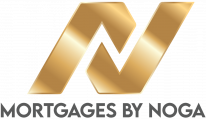
Fixed vs. Variable Mortgages
The fixed vs. variable rate mortgage debate is one that everyone is familiar with. We Canadians are conservative in nature and have been programmed to think a certain way. As a mortgage professional it is my job to provide you with unbiased advice. I am going to share some facts on this topic that some of you are probably not aware of.
Fixed-Rate Mortgage: a home loan that has a fixed interest rate for the entire term of the loan. This is perceived as the “safe” option
Variable Rate Mortgage: a home loan in which the interest rate is not fixed. Instead, the interest can fluctuate based on prime lending rates that change periodically.
Six out of ten Canadian homeowners will break their mortgage within the first 38 months. This occurs for various reasons, buying a new home, refinancing to leverage capital in their homes, or unfortunately divorce. When you break a mortgage before the end of the term, the lender charges a pre-payment penalty.
The prepayment penalty for breaking a fixed-rate mortgage is the greater of either three months interest or the interest rate differential (IRD) on the balance of the mortgage. In most cases, IRD is the greater. This usually results in a penalty of tens of thousands of dollars.
The prepayment penalty on a variable rate mortgage is three months interest. This penalty is a lot less than the fixed-rate IRD penalty. The three-month interest penalty usually works out to 1% of the balance of the mortgage.
Statistically, over the last 10 years, variable-rate mortgages have proven to be less expensive. Here is a chart from Ratehub.com that illustrates this point.

Dustan Woodhouse, a leader in the mortgage industry has an excellent quote, “Life is variable, therefore so should your mortgage product”.
Our lives are variable. The cost of groceries, gas and pretty everything we consume is variable. So why do we lock in and pay more for our mortgages? The short answer, we’ve been programmed to think that fixed-rate mortgages are safe, and variable-rate mortgages are risky. I am guilty of this myself, I listened to my parents and had fixed-rate mortgages. They like many of us listened to the banks. The banks are motived to keep stock prices high and shareholders happy, not me, not you.
Variable-rate mortgages provide clients with the option to convert into a fixed rate at any point in time. If prime rates are rising, and after consulting with your mortgage professional it’s determined that converting into a fixed rate is the best option, lenders will allow you to convert into their “best” fixed rate. The “best” fixed-rate varies from lender to lender.
The Bank of Canada meets eight times a year to decide and announce if the prime lending rate will be moved or not. At present, the Government of Canada’s prime lending rate is 0.25%. This rate affects variable-rate mortgages. The Government of Canada has stated that it has no intention to increase the rate until 2023 at the earliest. From my perspective, this means variable-rate mortgages are the better option now and into the near future.
However, the best decision you can make is to consult with a mortgage professional such as myself. I can help answer any questions you may have, and help you find the right mortgage for your situation.
If you’re on the fence wondering if you should take advantage of these historically low rates, get off the fence and book an appointment with me. I’ll analyze your current mortgage needs to see if I can help you save some money. All appointments are stress and commitment-free.
If it don't make dollars, it don't make sense.
DJ Quick
Let Me Help You Save Some Money

Sign Up For My
News Letter
I prefer quality over quantity so I only send a handful of emails each year. You can unsubscribe at any time
Sign Up For My News Letter
I prefer quality over quantity so I only send a handful of emails each year. You can unsubscribe at any time



